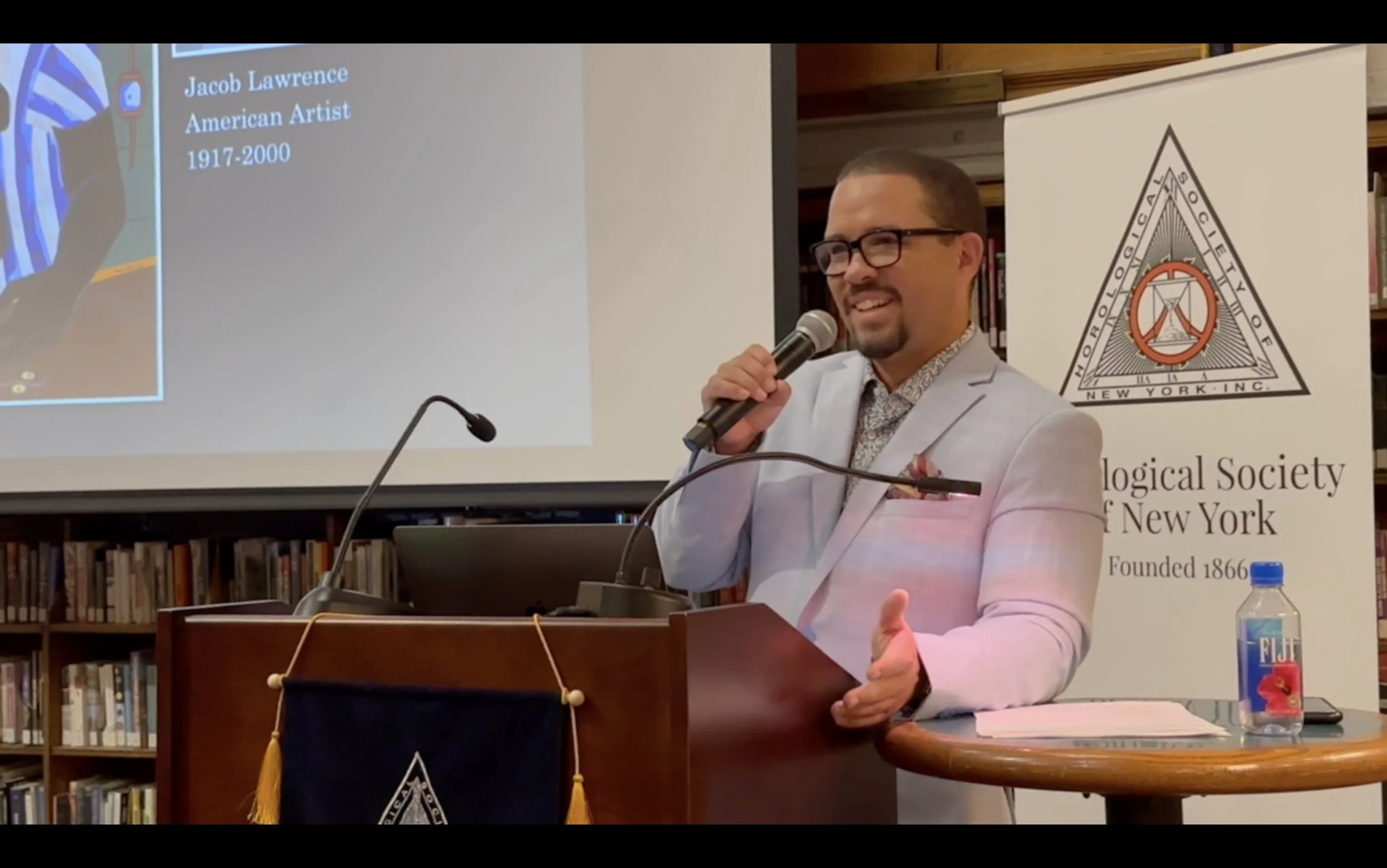Dr. Paul Lawrie, Associate Professor, Department of History, York University (Toronto, Canada)
Video recordings of lectures are available immediately to HSNY members, and the general public with a two-month delay.
Jacob Lawrence, Watchmaker, 1946
Time — much like race — possesses an ostensible ‘naturalism’ which often obscures the various historical factors which went into its making. Dr. Paul Lawrie’s research asks if time is indeed relative — as something born of specific historical contingencies — then how do different peoples experience time differently? Moreover, how does the lived experience of time create or reinforce racial inequality within cities? Time and race intersected to inform the landscape of modern urban America in a number of ways: from curfews and commutes to time work management and timekeeping itself.
At the June lecture of the Horological Society of New York, Dr. Paul Lawrie, Associate Professor, Department of History, York University, will examine the remarkable life of one Peter J. Huffstead — Harlem's self-described "master clockmaker" — and one of the earliest Black members of the Horological Society of New York. An analysis of Huffstead's career reveals key insights into the racialized nature of expertise, migration, the politics of respectability and the making of urban community in early 20th century America. Positing time as a past, present and future agent of urban development and racial identity, this lecture presents new perspectives into the spatial and temporal dynamics of urban race relations from the assembly line to the city streets.
*Doors open at 6PM ET, lecture to begin at 7PM ET. RSVP is required.
** The lecture video will be available to members immediately, and to the general public following a two-month delay.
Want to be notified as soon as ticketing is live? Follow us on Eventbrite!
About Dr. Paul Lawrie
Dr. Paul Lawrie is an Associate Professor of History at York University, Toronto, Canada. He is a historian of modern African American culture with specific interests in urbanism, labor, disability and technology. He is the author of “Forging a Laboring Race: The African American Worker in the Progressive Imagination” (NYU Press, 2016) which examined the intersections of industrial science and racial management in early 20th-century America. His current research, supported by a grant of the Social Sciences and Humanities Research Committee of Canada, entitled “The Color of Hours: Race, Time and the Making of Postwar Urban America,” links African American, labor and urban histories to the emerging field of time studies to chart the temporal geographies of race in twentieth-century urban America.


